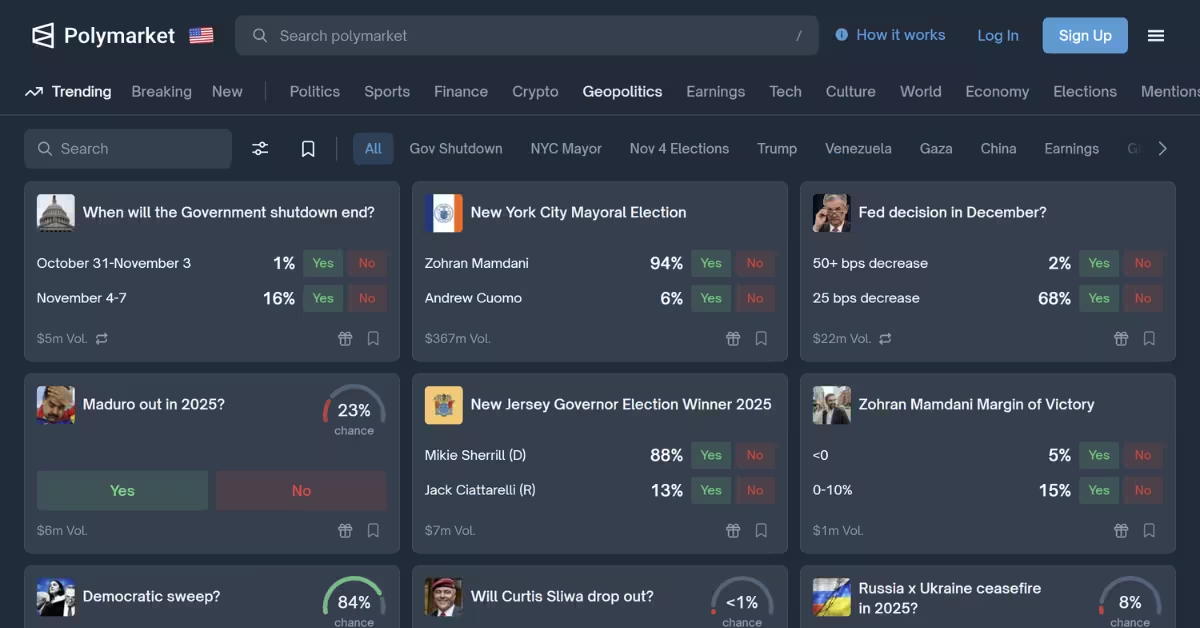San Antonio Spurs vs. Los Angeles Lakers Predictions & Betting Picks (November 5, 2025)
NBA fans get a real treat on a loaded Wednesday schedule, as Luka Doncic and the Los Angeles Lakers welcome Victor Wembanyama and the San Antonio Spurs to town.
The lights will be pretty bright in L.A. for this one, as the star power with both Wemby and Luka on the same floor is tough to ignore. Doncic and his crew will be mild 3-point favorites on their home floor, while their -148 moneyline feels like a steal.
Both teams come in with strong records, as the Spurs (5-1) will hope to take down the Lake Show (6-2) in order to hold onto second place in the Western Conference. This game has unlimited offensive potential, too, as evidenced by the strong 230.5 total.
So, who should you back for this tense Western Conference clash? Let’s check out the latest odds and go over some key matchups en route to my Spurs vs. Lakers prediction and top bets.
Game Details
- Matchup: San Antonio Spurs (5-1) vs. Los Angeles Lakers (6-2)
- Date & Time: Wednesday, November 5, at 9:10 p.m. ET
- Venue: Crypto.com Arena in Los Angeles, CA
- How to Watch: ESPN, FanDuel Sports Network Southwest, Spectrum Sports Net + and Spectrum Sports Network
Early Season Performance & Trends
San Antonio Spurs
The San Antonio Spurs have ascended to legit playoff contender status, as they’ve raced out to an impressive 5-1 start despite not having top point guard De’Aaron Fox in the lineup.
Wemby has taken his game to a new level, dominating to the tune of 26 points and 13 rebounds per game. His two-way presence is felt nightly, as the Spurs are able to push the pace and be competitive offensively, and still find time to own the NBA’s stiffest scoring defense.

Wembanyama is naturally the main selling point for a Spurs team already having some thinking about a title run, but the team’s pace is leading to easy buckets (1st in fastbreak scoring), and Wemby is impacting the team’s rebounding (6th) and interior defense (2nd) greatly.
San Antonio has some solid pieces around their superstar, but it’s clear they’ll probably only go as far as he’ll take them. As it turns out, though, that could be pretty far.
Los Angeles Lakers
The story isn’t dissimilar for the Lakers, who need Luka Doncic to ball out for a chance to win games. Fortunately, he does do that virtually every time he hits the hardwood, as he’s putting up a mind-boggling 41.25 points per game.
Doncic’s game count has been limited due to injuries, but he’s put the team on his back with LeBron James sitting out due to sciatica. Of course, it hasn’t only been Doncic, as Austin Reaves has morphed into a superstar (31.14 points per game!) at the same time.

L.A. is admittedly a two-man wrecking crew, but they don’t need much more than that with this dynamic duo guiding them to the 10th-best offense in the league. The Lakers could share the ball more and play better defense, but it’s hard to knock the results to this point.
Head‑to‑Head / Historical Context
The Spurs and Lakers have a very rich history, having met 192 total times during the regular season. The series have been incredibly competitive and nearly dead even, with the Lakers presently holding a mild 98-94 advantage.
Los Angeles has been the aggressor for some time now, as they went 3-1 in the regular season series last year and have won nine of the last 11 meetings.
In the last five games played in L.A., the Lakers are 4-1.
Key Matchup Breakdown
The Spurs have largely been a two-man offense so far, with Wemby taking on the most usage and turning that into 26 points per game. He is quite effective no matter where he opts to attack defenses, but he’s only connecting on 28% of his threes, so the Lakers may hope to push him outside more than usual.
Stephon Castle is San Antonio’s second leading scorer at 20 points per game and also the team leader in assists. He’s the safest bet to set the offense up most of the time, but this team as a whole is succeeding more in isolation, as they rank 24th in assists per game.
The Spurs are great at running and attacking; however, as they rank 1st in fastbreak points per game, and also dominate (9th) inside. They do struggle at the free throw line (28th), but they have several other ancillary scorers – Keldon Johnson, Dylan Harper, etc – that aid an efficient offense that works well inside the perimeter.
Los Angeles naturally leans heavily on Luka Doncic and Austin Reaves at the moment. Reaves takes a backseat to Doncic when both are on the floor, and when Luka is sidelined, it’s The Austin Reaves Show.
We haven’t seen that much of them together, but so far, things are clicking. The Lakers are getting inside production out of those two stars, but Rui Hachimura and DeAndre Ayton (16+ points per game) have been erratic sources of offensive support.
They are both capable and on the year are chipping in, but ideally they do so with more consistency. Everything is working overall, though, as the Lake Show ranks 10th in scoring, works well inside the paint (3rd), and operates the eighth most efficient offense in The Association.
Doncic’s aggressive nature and ability to penetrate the defense spearhead L.A.’s dominance inside, while Ayton has also played a key role. Despite their elite iso ball, the Lakers share the ball pretty well (13th in assists per game) and regularly get to the line (7th in free throw makes).
The Spurs run at the 11th fastest pace in the league, while the Lakers tend to play on the slower side (22nd). L.A. has a passable defense, but it pales in comparison to San Antonio’s, which ranks first in scoring and 2nd in overall efficiency.
San Antonio has the ability to avoid losing their defensive bite despite pushing the pace and putting up points, which puts the Lakers at a disadvantage, even at home.
- Who guards Luka? Doncic is pretty unstoppable due to his outside shooting and ability to get easy buckets inside, while the Spurs are without two of their best on-ball defenders in Fox and Sochan. Do they have anyone that can slow Luka down?
- Ayton vs. Wemby: DeAndre Ayton has caught a lot of heat over the years, but he’s played pretty well for the Lakers. He will be the team’s last line of defense against Wemby when he goes inside, though. I definitely give Wemby the edge, but can Ayton make him work for his points?
- Someone other than Luka+Reaves: The Spurs play great team defense, and Wemby can swat everything away inside. If San Antonio tracks Luka well and contains Reaves, the Lakers may need a third scorer to step up in a big way. Ayton or Rui are the most logical bets, but it could take an unsung hero like Marcus Smart or Jake LaRavia for L.A. to change the tide in this matchup.
The Lakers have weirdly endured both of their losses at home this year. Both came against teams that presently rank inside the top-11 in defensive efficiency.
The sample size is small, but Luka Doncic has yet to lose to Wemby. He’s a perfect 4-0 against his fellow Western Conference superstar.
Los Angeles has been fantastic against the spread. They are 6-2 ATS overall on the year and 2-0 ATS as the favorite. They are just 2-2 against the spread at home, however.
San Antonio is just 3-1-2 against the spread as a whole and 1-0 ATS as the underdog.
Betting Odds & Market Interpretation
Check out the latest Spurs vs. Lakers betting odds (via FanDuel):
| Team | Spread | Moneyline | Total |
|---|---|---|---|
Spurs | +3 (-112) | +122 | Over 228.5 (-110) |
Lakers | -3 (-108) | -144 | Under 228.5 (-110) |
What the Market Suggests
The market indicates that there is not a huge gap between the Spurs and the Lakers right now. L.A. is getting respect due to their solid start and the fact that this game is at home, but San Antonio being just 3-point road dogs means they have a decent chance to stage the upset. Both teams put up plenty of points, with their 230.5 total suggesting this will be a bit of a shootout.
From a Bettor’s Lens
Betting against Luke Doncic never feels fun, but the Spurs do feel like the more compelling value at first glance. They are on the road, but they are much healthier than the Lakers right now, and bettors can get them at plus money.
This game’s total also stands out. San Antonio’s defense can be solid, but they don’t really have anyone that can tame Luka. Given both offenses’ potential, the Over is tough to deny.
Situational Considerations
San Antonio will be very rested for this one, as their last game was three days ago on November 2nd. L.A. played on November 3rd, but sat their top two offensive weapons.
Health-wise, the Spurs are in better shape. LeBron James remains out for the Lakers, while Los Angeles could be without up to five other rotational bodies. De’Aaron Fox and Jeremy Sochan remain sidelined for the Spurs, but they still enter this matchup with better overall depth.
Best Bets & Confidence Levels
| Bet | Recommendation | Confidence Level |
|---|---|---|
Over 228.5 (-110) | The Lakers are top 10 in scoring, and the Spurs are 11th in pace. I don’t see this being a boring, slow-paced game. I see a lot of points from both sides. Given the spread, pace, and star power involved, we should be getting a high-scoring affair. | 7/10 |
Spurs +122 | San Antonio is on the road, but they are a little more rested than the Lakers; they are healthier overall, and they have a stingier defense. The value looks good on both sides, but the Spurs feel like a smash at plus money. | 7/10 |
Prop – Luka Doncic Over 35+ Points (+114) | San Antonio’s defense is quite good, but they still give up over 108 points per game, and completely silencing Luka – who has scored 40+ in three of four games on the year – seems unlikely. | 7/10 |
San Antonio Spurs vs. Los Angeles Lakers lines can shift fast — monitor real-time odds and compare the best spreads now at our best sports betting sites before tip-off.
Final Score Prediction & Closing Thoughts
Final Score Prediction: Spurs 117, Lakers 114
The Spurs have the #1 scoring defense in all of basketball, so there’s no doubt that they have the ability to put the clamps down. There is enough wiggle room to allow for a living legend like Luka Doncic to go off, however, so I do think this game should stay close and be relatively high-scoring.
If that’s going to be true, Doncic will need to be locked in. Without LeBron James to steal usage, I see no reason to believe that won’t be the case. It will be enough to get Luka 35+ points and help the Over hit, but the more balanced Spurs should steal a big road win in the process.
Kent State vs. Ball State Prediction & Betting Picks (November 5, 2025)
Nobody knows who to back in a tense MAC battle on Wednesday night, where the Ball State Cardinals prepare to defend their home turf as slight –115 betting favorites.
Ball State enters the week at just 3-5 and 2-2 within conference play, but they are not alone, as familiar foes Kent State comes to town with the exact same pedestrian record.
It could be a war of attrition, as neither of these teams look particularly great, and the loser can kiss their season goodbye. Without much to play for beyond conference pride, this won’t be an easy game to project.
Not sure how to bet on Kent State vs. Ball State? I don’t blame you, so I’ll scan the latest odds, break down the key matchups, and highlight the game’s most appealing bets.
Game Basics & Context
- Matchup: Kent State Golden Flashes (3-5) vs. Ball State Cardinals (3-5)
- Date & Time: Wednesday, November 5, with kickoff at 6:00 pm CT (7:00 pm ET)
- Venue: Scheumann Stadium in Muncie, TN
- How to Watch: The game will be broadcast on ESPNU.
Team Record
- Kent State is 3-5, 2-2 in the MAC.
- Ball State is 3-5, 2-2 in the MAC.
Betting Odds
Check out the most current Kent State vs. Ball State odds, per ESPN Bet:
| Team | Spread | Moneyline | Total |
|---|---|---|---|
Kent State | +2.5 (-115) | +110 | Over 47.5 (-105) |
Ball State | -2.5 (-105) | -130 | Under 47.5 (-115) |
Rivalry & Venue Context
Kent State and Ball State don’t have a rich history. They’ve still met 32 times, though, with Ball State dominating the series, 24-8.
As you’d expect, the Cardinals won the most recent meeting and have won each of the last three contests. Last year’s showdown was quite intense (and high-scoring), however, as it went down to the wire in a wild 37-35 shootout.
The game before that was a blowout, but these meetings have been pretty tight and typically have a decent amount of points. The road team has also won the last three games and five of the last six.
Why This Game Matters
This is all about pride in the MAC, while both of these teams are coming in with weak overall records. Neither has a shot at a truly special season, as CFP and conference title hopes are all but dashed.
It’s still possible one of them could win out and snag a bowl game, but even that isn’t looking likely. With not much to get excited about, this one is all about bragging rights.
Team Profiles

Kent State Golden Flashes
Kent State hasn’t been great on the year. They got off to a 1-0 start, but lost each of their next four games. Only one of those games was close, too, as they got housed routinely.
They did dominate UMass to snap that skid, but then got blown away by Toledo before edging out Bowling Green last week.
This is not a very reliable or fun team. Kent State averages just 18.3 points per game on offense, and they allow almost 40 per game (!!). They are a run-first team that isn’t particularly efficient or dominant in that regard.
Dru DeShields (11 TDs, 2 INT) has been productive under center, and he’s the lone bright spot for a weak offense. He hasn’t done enough to convince anyone to bet on Kent State simply due to his presence, however.

Ball State Cardinals
Ball State isn’t much better. They have an identical record to Kent State both in and out of the MAC, and as you’d imagine, they’ve also gotten slapped around quite a bit in 2025.
Qua Ashley (513 rushing yards) has been solid for them on the ground, while dual-threat passer Kiael Kelly contributes to an at times strong rushing attack. The Cardinals are not dominant, but they are somewhat dynamic and want to run the ball as much as possible.
Ball State is impossibly worse than the Golden Flashes on offense, though, as they average a paltry 13.9 points per game (131st in the country). They have a slightly better defense thanks to the nation’s 39th-best sack rate, but they have been far from impressive.
Key Matchup Angles
Consider the following key matchups:
- Ball State’s rush offense vs. Kent State’s run defense: Both of these teams want to run the ball, but the Cardinals have such a bad offense that whether they can succeed on the ground or not matters the most. The matchup isn’t difficult on paper, and they’re at home, so there’s a chance they could control this game.
- Kent State’s passing game vs. Kent State’s pass rush: The Golden Flashes aren’t going to pass a ton, but when they do, how they fare against a solid Ball State pass rush could decide how effective they are on offense. Considering they allow a poor 9% sack rate, it could be a pretty key angle that decides the outcome.
Betting Insights & Trends
It’s been all Ball State in this matchup lately. They have won three in a row and five of the last six. All five of their wins have come on the road, but on Wednesday night, they will be playing host.
Kent State hasn’t been a good team against the spread. They’re just 4-4 overall on the year, 1-3 ATS on the road, and 1-3 against the spread as the road dog.
Ball State has been better, going 5-3 overall against the spread. They are also 1-0 ATS as the home favorite.
Best Bets & Confidence Levels
Check out the top picks for this game:
| Bet | Recommendation | Confidence Level |
|---|---|---|
Under 47.5 Total (-115) | The offenses in this game are horrific, and they want to run the ball. The defenses are also bad, but it’s tough to have much faith in them combining for 48 points, given what they’ve done on the year. | 7/10 |
Ball State -130 | The spread price is the same as the ML, so there’s no real reason to place this bet unless you find better odds. However, the Cardinals have dominated this series lately and seem to have the (slightly) better team at home. | 7/10 |
- Primary Pick: Under 47.5 (-115)
- Secondary Pick: Ball State ML (-130)
This is a pretty gross game, but these teams don’t combine for even 42 points per game on average. They also don’t have a ton to play for at this point of the season, so barring a total collapse from their defenses, I doubt we get a ton of scoring. Ball State has also been dominating the series and are at home, so they have the natural edge.
Kent State vs. Ball State odds can change quickly — stay ahead of every line movement and compare spreads now at the top football betting sites before kickoff.
Risk Factors & What Could Go Wrong
There are no guarantees in betting. Here’s why these bets could fail:
- Payback: Both of these teams stink, and the spread is super tight, so it wouldn’t be that shocking for the slightly worse Golden Flashes to stage the upset.
- Road Team Luck: The road team keeps winning in this series. Ball State has dominated the series and is at home, but trends are noted for a reason.
Putting Our Pick on the Board: Here’s How It Plays Out
Final Score Prediction: Ball State 23, Kent State 20
This game can’t be anything other than low-scoring. Neither of these offenses offers any upside, and they both love to run the football. Ball State has dominated the season series, will be at home in the middle of the week, and have a slightly better defense.
I can see Ball State controlling the game if they can find a way to establish the run early. It won’t be pretty, of course, and that’s precisely why the Under stands out in this likely defensive battle.
Phoenix Suns vs. Golden State Warriors Prediction (November 4, 2025)
The Phoenix Suns hope to hand the rival Golden State Warriors a loss on Tuesday night, even though DraftKings has them slated as 10.5-point road underdogs.
Things haven’t gone as planned for the Suns, who unloaded star talent in Kevin Durant and Bradley Beal in the offseason and are just 3-4 through seven games. They’ll be tasked with beating a pretty hefty spread – and chasing their first road victory of the year – in a hostile environment against what figures to be a legit title threat.
Golden State hasn’t been perfect, either, as Stephen Curry and the Dubs are just 4-3. A brutal opening schedule that has so far included four road games is largely to blame, but they’ll hope to stay perfect on their home floor.
Not sure who to take thanks to the rivalry and big spread? Join me as I look at the latest odds and break down key matchups to uncover the best bets for this Suns vs. Warriors battle.
Game Details
- Matchup: Phoenix Suns (3-4) vs. Golden State Warriors (4-3)
- Date & Time: Tuesday, November 4, at 9:00 p.m. ET
- Venue: Chase Center in San Francisco, CA
- How to Watch: Arizona’s Family 3TV, NBA League Pass, NBC Sports Bay Area and Suns Live
Early Season Performance & Trends
Phoenix Suns
The new-look Suns don’t even know how good they can be yet, as shooting guard Jalen Green – who the team acquired in a trade with the Houston Rockets – has yet to make his team debut.
Even so, Phoenix is staying afloat in the competitive Pacific Division, off to a 3-4 start and claiming wins in their last two games to snap a four-game skid. Through it all, the team has relied on star guard Devin Booker’s scoring (30 points per game), while it’s gotten surprise contributions out of Grayson Allen (16.4 ppg) and Dillon Brooks (19.3 ppg).

That trio has helped the Suns to a solid 118.3 points per game (12th) and the NBA’s very best three-point attack.
While Phoenix can still run with the best of them on offense, they leave a lot to be desired on the defensive end. The Suns are giving up over 120 points per game (23rd) and are predictably bad at defending the paint (20th).
Golden State Warriors
The Golden State Warriors have looked like a title contender ever since landing star swingman Jimmy Butler in a trade with the Miami Heat last year. The team parlayed that move into a playoff run, but an untimely injury to Steph Curry derailed their championship hopes.
Chef Curry and co. are back at it in the early going this year, but a tough schedule has once again delayed the results fans and bettors anticipated. Golden State still has a winning record, however, and are being led by the usual suspects in Curry (26.5 ppg) and Butler (21.4 ppg).

That fearsome duo has guided the Dubs to 117.6 points per game (14th), with their bread and butter being sharing the wealth (9th in assists) and connecting from long range (4th most made threes per game).
Of course, Golden State continues to make their mark on the defensive end, as they enter this matchup with the league’s 11th best scoring defense. That unit also happens to rank 10th in defensive efficiency, while they are defending the deep ball as well as anyone (7th).
Head‑to‑Head / Historical Context
The Suns and Warriors have duked it out quite a bit throughout history. The two play in the Pacific Division and run into each other a good amount, having already gone head-to-head for 267 regular-season meetings.
Despite Golden State’s numerous title runs, they trail the regular season series (152-112), and they haven’t even had the upper hand of late. Phoenix has been the aggressor, winning five of the last eight meetings.
Key Matchup Breakdown
Phoenix is putting points up without a key contributor in Jalen Green, but it will be a lot harder to keep that success rolling on the road against a stingy Warriors defense.
The guard play and outside shooting for the Suns has been on point, but they rank 25th in the league in points scored in the paint. Phoenix surprisingly doesn’t push the pace that much (21st) for a team that hoists the fourth most threes per game.
Devin Booker is the face of the offense, but the Suns would be wise to work big man Mark Williams into their plans a bit more. Establishing that inside-outside attack against this Warriors defense may not be an easy task, however.
The Suns thrive on volume from long range and that’s good for the NBA’s 11th best perimeter shooting offense. It just might not be a great bet to expect it to hold up in this particular matchup.
The Dubs have a nice duo in Curry and Butler, who account for a large chunk of their scoring. They do have a key third scorer in Jonathan Kuminga, and whether or not he shows up could be the x-factor for them on offense in this tilt.
Luckily, the Warriors play team basketball, which has them grading out highly in assists per game (9th) and assists per made shot (3rd). Their tendency to find the open man and work the ball gets them high marks in effective field goal percentage (13th), while they get plenty of open looks from deep (6th in attempted threes per game) and convert at a high rate.
Stephen Curry’s still blistering free throw rate leads the 5th best free throw shooting team in The Association, which is another feather in the cap of a balanced and efficient offensive vehicle.
Golden State will also push the pace and exploit defenses on the fly, ranking 13th in fastbreak points per game. They do lack size or imposing offense down low, of course, as they rank just 22nd in scoring inside the paint.
As noted, the Warriors play pretty fast (9th in pace) and when you share the rock and look for the open man, it leads to easy buckets in transition – or wide open threes that you knock down.
If the game goes fast, it benefits the Warriors. Phoenix is equipped to hang with the Dubs in that case, but they do not have the defensive aptitude to actually slow the Warriors down.
Golden State can play either way, as they have strong defensive bite, ranking 11th in scoring and 7th against the three ball – the latter in which is a direct combatant to what the Suns do best.
- Chef Curry: Nobody can actually stop Steph Curry. He’s either hot or he’s not. I can tell you that Dillon Brooks is not playing in this game, leaving the Suns without a true isolation defender that can keep Curry in check. Given Phoenix’s current defensive limitations, that could mean an explosion for the aging star.
- Suns outside shooting vs. Warriors perimeter D: Golden State plays fast and yet they still close out and limit outside shooting success. Phoenix could offset that with their quality array of shooters, but the matchup stinks on paper.
- Warriors’ fastbreak offense vs. Phoenix’s transition defense: Not having Dillon Brooks hurts the Suns quite a bit, as they rank 26th in fastbreak points allowed per game. It stands to reason that a good transition team like Golden State will exploit the mismatch by pushing the pace even more on Tuesday.
The home/away splits are stark. Phoenix is 0-3 away from home so far, and the Dubs haven’t lost on their home court yet. This is especially big for the Warriors, seeing as they’ve endured a brutal schedule with a ton of road contests.
Injuries are always going to be at the forefront of the “intagibles” conversation, and the continued absence of both Jalen Green and Dillon Brooks is massive for the Dubs. Not having Brooks hurts Phoenix’s defense, while Green is another scorer that would love to turn to, but can’t.
It’d be a little shocking if the Warriors opted to rest any of their aging stars. Curry, Butler, Draymond Green, and Al Horford are all pretty long in the tooth. They all are likely to play, but any of them resting could impact the odds and outcome.
Betting Odds & Market Interpretation
Here are the latest Suns vs. Warriors odds (via DraftKings) for Tuesday:
| Team | Spread | Moneyline | Total |
|---|---|---|---|
Suns | +10.5 (-110) | +350 | Over 231.5 (-112) |
Warriors | -10.5 (-110) | -455 | Under 231.5 (-108) |
What the Market Suggests
There is an absurd amount of confidence in the Warriors at home. Their thick -500 moneyline indicates they are extremely likely to win, which makes sense since they tend to fare well on their home floor, and by all accounts, they are the more reliable team.
The 10.5-point spread is pretty outrageous, but it suggests the Suns are a far inferior team as currently constructed. The 231.5 total leans into both teams’ offensive ceilings and Golden State’s desire to push the pace.
From a Bettor’s Lens
My initial reaction is that the Warriors are correctly pegged as the favorites at home, but both the ML and spread are a bit out of control. There is instant value in targeting Phoenix on the M,L and the Suns beating the spread stands out as an even better bet.
Of all the possible wagers, though, betting on the Over stands out the most. This is a very palatable game total considering both offenses have been productive and Phoenix’s defense has been rather suspect.
Situational Considerations
While the early-season schedule has been a bit cruel to the Warriors, they are playing this game on three days’ rest, and they’ll be at home. Phoenix, meanwhile, is only on two days of rest and will be on the road, where they’ve yet to get a win in 2025.
Best Bets & Confidence Levels
| Bet | Recommendation | Confidence Level |
|---|---|---|
Over 231.5 | The Suns and Warriors both rank inside the top 14 in scoring, and they both can connect from long range with the best of them. Golden State’s defense lowers Phoenix’s upside, but their pace of play should allow for this game to hit the Over. | 7/10 |
Suns ATS +10.5 (-110) | This is a pretty rich spread. Phoenix lacks defensive aptitude, and the Dubs are good at home, but wonky things happen in the NBA. At the end of the day, Devin Booker could easily keep the Suns in this, especially when you consider how the Dubs are a middling 4-3 ATS this year. | 7/10 |
Phoenix Suns vs. Golden State Warriors lines are shifting fast — track live odds and compare spreads before tip-off at our best sports betting sites to lock in the best value.
Final Score Prediction & Closing Thoughts
Final Score Prediction: Golden State Warriors 121, Phoenix Suns 114
This predicted score has the Suns coming in four points under their season average, with an efficient Warriors team scoring one more point than Phoenix typically allows. The Dubs definitely get a huge boost at home in this spot, and the matchup favors the Warriors across the board.
I don’t see a realistic path to a Suns upset, but 10.5 points is pretty steep. Let’s not forget that Booker has been cooking as a scorer all year, and Phoenix just beat the Spurs in their last game. The Warriors will win, but their ML is not something we should be betting on.
Instead, hammer the Over and bet on the Suns to keep it (somewhat) interesting.
Miami (OH) vs. Ohio – “Battle of the Bricks” Betting Prediction (Nov 4, 2025)
Fans get an epic battle on Tuesday night, as The Battle of the Bricks commences when Miami Ohio (5-3) hits the road the battle arch nemesis Ohio (5-3) in a tense MAC showdown.
Ohio won easily in the MAC title game last season, and they will unsurprisingly be -146 favorites to win again. Both teams have strong standings within the MAC already, but the winner of this game will thrust themselves to the top of the conference.
Miami Ohio comes into this one with a sparkling 4-0 MAC record, potentially making them the more appealing value between the two sides. With a mild 49.5 game total and a tight 2.5-point spread, though, bettors may want to prepare for a lower scoring game that goes down to the wire.
Wondering if the RedHawks can stage the upset in Athens on Tuesday? I’ll inspect the latest odds and breakdown the key matchups before pointing you to the best bets for this game.
Game Basics & Context
- Matchup: Miami Ohio RedHawks (5-3) vs. Ohio Bobcats (5-3)
- Date & Time: Tuesday, November 4, with kickoff at 6:30 pm CT (7:30 pm ET)
- Venue: Peden Stadium in Athens, OH
- How to Watch: The game will be broadcast on ESPN.
Team Record
- Miami Ohio is 5-3, 4-0 in the MAC.
- Ohio is 5-3, 3-1 in the MAC.
Betting Odds
Take a look at the latest Miami Ohio vs. Ohio odds, per FanDuel:
| Team | Spread | Moneyline | Total |
|---|---|---|---|
Miami Ohio | +2.5 (+100) | +120 | Over 49.5 (-115) |
Ohio | -2.5 (-122) | -142 | Under 49.5 (-105) |
Rivalry & Venue Context
This series is about as intense as it gets for conference rivalries. To say that there is history between these two Ohio colleges is an egregious understatement, as we’ve seen this matchup go down 101 times before.
It’s been a reasonably competitive series, but Miami Ohio holds the edge, 56-43-2 throughout history. They didn’t win the most recent clash, of course, as the Bobcats dominated in 2024, 38-3.
Miami Ohio won the previous two meetings, while the two sides have split (3-3) over the last six meetings. The Battle of the Bricks resulted in Ohio winning the MAC title a year ago, so the already brewing bad blood between these two programs will rise to new heights on Tuesday night.
Why This Game Matters
It’s the Battle of the Bricks. These are the two oldest universities the state of Ohio has to offer, and they’ve been dueling each other since the Silent Era. There is actually more on the line than usual, however, as these two Mid-American Conference rivals are both off to solid starts and are in contention for first place.
The winner will hold a massive edge going forward, along with bragging rights for the next year. The loser, meanwhile, goes home with their tail between their legs and may also see their shot at the MAC title – as well as a bowl game appearance – slip away.
Team Profiles

Miami Ohio RedHawks
Miami Ohio has made good on their intentions to avenge their brutal MAC title game loss, as they come in with a perfect 4-0 conference record. It wasn’t always sunshines and butterflies for the RedHawks in 2024, however, as they got off to a rough 0-3 start out of the gates.
They did battle UNLV to a tight 41-38 shootout loss in week three, however, and that offensive explosion catapulted them to a hot run. They’ve now ripped off five straight wins, exhibiting a capable offense (24.3 points per game) and an improved defense.
Armed with the nation’s 15th best sack rate and one of the better dual threat quarterbacks in DeQuan Finn, Miami Ohio has a real shot to exact revenge against their bitter rivals.

Ohio Bobcats
The last time the Bobcats saw Miami Ohio, dual-threat QB Parker Navarro was having a field day. Not much has changed, as he’s still dominating on the ground (504 rushing yards, 4 TDs), and is taking care of business through the air just as well.
Navarro is far from alone, of course, as stud running back Sieh Bangura (728 rushing yards, 9 TDs) has been tough to stop. The two combine their efforts to formulate the country’s 21st-best rushing offense, while Navarro remains more than competent (23rd in completion rate) in the passing realm.
The Bobcats don’t blow you away on offense, but they are dynamic enough to mess with just about anyone, and it’s a big reason for their success (3-1) in MAC play so far. They also have a solid defense that hasn’t allowed more than 21 points in any of their last four games.
Key Matchup Angles
Consider the following key matchups:
- Miami Ohio’s rush offense vs. Ohio’s run defense: The RedHawks put up over 150 rushing yards per game as a unit (60th). Ohio’s run defense is 60th against the run. Something has to break here, but if the RedHawks can establish their ground game, they can not only control the pace of this game – but they also can keep Ohio out of sync offensively.
- Ohio’s rush offense vs. Miami Ohio’s run defense: This is an even bigger matchup to consider, as the RedHawks have a stingier run defense (42nd), but the Bobcats are one of the nastiest, most dynamic running teams in the nation. Miami Ohio slowing that unit down could breathe more life into their own offense.
- Parker Navarro vs. Miami Ohio’s pass rush: Throw in Ohio’s o-line play here, too, as they have to contend with the RedHawks’ sick pass rush. However, it will ultimately be Navarro’s efficiency and decision-making that is tested. He’s struggled with turnovers (7 INTs), so an effective pass rush could be problematic.
Betting Insights & Trends
Miami won the most recent meeting, but Miami Ohio won the previous two. Overall, these teams have split their last six meetings.
Miami Ohio comes in on fire, having won each of their last five games. Ohio isn’t quite as hot, but they’ve secured wins in four of their last five outings.
The RedHawks have been quite good against the spread (6-2 overall), including 4-0 ATS in MAC games and 3-1 ATS as the road team.
As for Ohio, they haven’t been as reliable, going just 4-3-1 overall against the spread. They’ve also gone just 2-3 ATS when favored and 2-2 ATS inside the conference. However, the Bobcats are 3-1 ATS at home.
Best Bets & Confidence Levels
Check out the best bets for this contest:
| Bet | Recommendation | Confidence Level |
|---|---|---|
Ohio -142 | The Bobcats wiped the floor with the RedHawks the last time they saw them, and not much has changed. They still look like the more imposing team on offense, and they get to play this game in front of their home crowd. | 7/10 |
Ohio ATS -2.5 (-122) | The spread is very tight, so if you like Ohio to win, you should feel reasonably good about them to cover, too. The RedHawks didn’t come close to beating the spread last time, and I’m not sold that their defense is good enough to slow Ohio down. | 7/10 |
Over 49.5 (-115) | Neither defense is elite, as they are both allowing over 23 points per game. Both offenses are fully capable of putting up points, too. The total is relatively modest, but given the offensive talent and favorable matchups, a mild shootout (betting the Over) sounds right. | 7/10 |
- Primary Pick: Ohio ML (-146)
- Secondary Pick: Ohio ATS -2.5 (-122)
The moneyline and point spread favor Ohio at home. That makes sense, as they do look like the better team, and they have the benefit of playing a tense rivalry game in front of their home crowd. Much of the public betting has favored Ohio, but I still wouldn’t feel good about going against that logic.
Miami Ohio vs. Ohio odds can shift fast — track live line movement and secure the best spreads before kickoff. Compare updated numbers now at the top football betting sites.
Risk Factors & What Could Go Wrong
Even the best bets can fail. Here’s some reasoning for why our top picks may not pan out:
- The Battle of the Bricks: This is an incredibly storied rivalry, and both of these teams will want to win. Given their history and the small spread, an upset wouldn’t be that crazy.
- Miami Ohio’s Run D: Ohio should control this game due to a dynamic offense, but Miami Ohio does have a capable defense that ranks 15th in sack rate and does a solid job against the run. It probably won’t be good enough, but it’s always possible that it could be.
- Turnover Prone: Another big thing to consider is Parker Navarro’s turnover woes. He’s a big reason I like Ohio to win, but his team is averaging 1.3 giveaways per game and ranks 117th in interception rate.
- Poor RZ Efficiency: Lastly, Ohio doesn’t grade out as a great red-zone offense. Once inside the 20, they only score 76% of the time (112th). If that becomes a problem in this one, Miami Ohio could stay close and find a way to make us look silly.
Putting Our Pick on the Board: Here’s How It Plays Out
Final Score Prediction: Ohio 34, Miami Ohio 27
Miami Ohio has looked good enough this year for me to believe they will put up a much better fight than they did in this game in 2024. They have a capable offense, and the numbers say their defense has a chance to limit the Bobcats.
That will likely only be to a certain degree, however. Ultimately, both teams can run the ball well, and Ohio is going to set the tone and pace at home. The spread indicates a somewhat close game, but Ohio should win, and we should get enough points to hit the Over.
Prediction Markets vs. Sportsbooks: Who Wins When Everyone Bets on Everything?
Betting isn’t what it used to be. It’s no longer just about Sunday spreads or who covers the over. Today, you can wager on almost anything — from election outcomes and crypto prices to how long it’ll take before your favorite celebrity drops their next album.
That shift isn’t random. It’s the result of two powerful forces colliding: the rise of prediction markets and the evolution of sportsbooks into data-driven, AI-powered machines. One lets the crowd decide what’s likely to happen. The other uses expert algorithms and sharp oddsmakers to keep the house on top.
The result? A high-stakes face-off between democracy and dominance — where everyone’s opinion can move the market, and every bet becomes a data point in the world’s biggest guessing game.
But here’s the real question: When everyone bets on everything, who actually wins? The traders who outsmart the crowd? The sportsbooks with their razor-thin edges? Or maybe the everyday bettor who knows how to play both systems against each other?
Let’s pull back the curtain and find out which side truly holds the advantage — and how this new frontier of betting might redefine the entire gambling industry.
What Are Prediction Markets (and How They Work)
Prediction markets are where betting meets economics. Instead of relying on a bookmaker to set the odds, these platforms let the crowd decide what’s likely to happen. Every participant essentially becomes a mini-analyst, buying and selling “shares” in an outcome — and the current price of those shares reflects the market’s collective belief about the probability of that event.

Here’s how it plays out: if a contract tied to “Team A winning the championship” is trading at $0.65, the market is saying there’s a 65% chance Team A pulls it off. If new info drops — a major injury, a coaching change, or a viral tweet — those prices shift in real time as traders adjust.
Popular Prediction Market Platforms
- Polymarket – A blockchain-based platform offering markets on politics, pop culture, and global events.
- Kalshi – A U.S.-regulated exchange focusing on economics, weather, and policy outcomes.
- PredictIt – A political prediction market popular for tracking elections.
Advantages of Prediction Markets
- Collective intelligence: Thousands of small opinions merge into surprisingly accurate forecasts.
- Real-time odds movement: Markets react instantly to new information.
- Transparency: Prices are visible to everyone, not hidden behind algorithms.
- Creative markets: Bet on events that traditional sportsbooks wouldn’t touch.
Drawbacks to Watch For
- Limited liquidity: Smaller markets can see wild price swings.
- Regulatory gray zones: Not all are approved or monitored by U.S. regulators.
- Potential for manipulation: Deep-pocketed traders can distort market sentiment.
In essence, prediction markets are like the stock market for outcomes. Instead of trading companies, you’re trading beliefs — and your profit depends on whether the crowd’s collective wisdom turns out to be right or wrong.
Sportsbooks: The Traditional Powerhouse
If prediction markets are the Wild West of betting, sportsbooks are the established kingdoms. These are the heavyweights — names like FanDuel, DraftKings, BetMGM, Caesars, and ESPN BET — operating under tight regulation, armed with massive data models, and backed by billions in handle every week.

Sports betting sites don’t just let people wager; they engineer the odds. Oddsmakers build their lines using a mix of analytics, AI, and good old-fashioned intuition. They analyze player stats, weather, matchups, injuries, and betting trends — all to produce odds that attract bets on both sides. Once the bets come in, they adjust the line to balance their exposure and secure the margin known as the vig (the house’s built-in profit).
In short, sportsbooks don’t care who wins — they care that they do.
How Sportsbooks Build the Line
- Data Modeling: Algorithms project likely outcomes using advanced analytics.
- Market Testing: Early odds are released to “sharps” who help reveal line weaknesses.
- Public Action: Odds are fine-tuned based on where casual bettors are putting their money.
- Balancing the Book: Lines move not to predict the outcome, but to equalize risk.
Advantages of Sportsbooks
- High liquidity: Big events can handle millions in wagers without major price swings.
- Legal and regulated: Licensed operators must meet consumer protection standards.
- Reliable payouts: Winnings are guaranteed under legal oversight.
- Variety: From prop bets to live in-play markets, sportsbooks offer it all.
Disadvantages
- House edge: The built-in vig means you’re always paying a small tax on every wager.
- Limited flexibility: Markets are controlled by the operator — you can’t create your own events.
- Opaque pricing: You see the odds, but not the math or reasoning behind them.
Sportsbooks are built on consistency, trust, and scale. They dominate the mainstream because they feel familiar, safe, and polished. But that comfort comes with a tradeoff — less transparency, and odds that aren’t always a pure reflection of reality.
Efficiency Showdown: Crowd Wisdom vs. Bookmaker Expertise
At the heart of the debate between prediction markets and sportsbooks lies one crucial question: Who’s better at predicting the future — the crowd or the experts?
Prediction markets lean on the “wisdom of the crowd” theory — the idea that when thousands of independent participants each put money behind their beliefs, the resulting average prediction is often shockingly accurate. Every buy or sell order adds a small piece of new information, and collectively, that flow of data becomes a living, breathing forecast.
Sportsbooks, on the other hand, depend on expert modeling and data science. Teams of statisticians, traders, and oddsmakers crunch injury reports, historical stats, player form, and betting volume to build lines that reflect not only probability but also risk exposure and public sentiment.
To break it down simply:
Prediction Markets Excel When:
- There’s broad, distributed information. Many participants have unique insights that collectively improve accuracy.
- The event is non-traditional. For elections, policy, or pop culture, crowds may adapt faster than models.
- Transparency matters. Prices instantly show what people actually believe, not what a company wants them to think.
Sportsbooks Excel When:
- Data is structured and abundant. Sports outcomes have deep datasets that models digest better than human intuition.
- Speed and liquidity count. Lines must move fast during live play; sportsbooks have the tech to manage that.
- Profit management matters. Books adjust not just to predict outcomes, but to ensure they stay profitable regardless of result.
In theory, prediction markets should always converge toward true probability — but in practice, liquidity gaps, manipulation, and herd behavior can skew results. Meanwhile, sportsbooks use a tighter, more conservative system that sacrifices perfect accuracy for reliable revenue.
So which wins? It depends on your metric. Prediction markets might be truer, but sportsbooks are safer. The crowd chases information; the house manages it. And both, in their own way, reflect how money translates belief into numbers.
The Role of Regulation and Risk
When it comes to betting, regulation is the line between security and uncertainty. Sportsbooks and prediction markets operate on opposite sides of that line — and understanding how each is governed (or not governed) can make or break your trust as a bettor.
Sportsbooks: Safe, Structured, and Supervised
Sportsbooks are built on regulation. Every legal operator in the U.S. must follow state-level laws that dictate how bets are handled, payouts are processed, and consumer protection rules are enforced. Licensing requirements, audits, and responsible gambling measures are part of the deal.
That’s why placing a bet on FanDuel or DraftKings feels consistent. You know what’s allowed, what isn’t, and that you’ll actually get paid if you win. These sportsbooks operate under strict oversight designed to keep betting fair and transparent.
To see how the legal landscape works in your state, check out our detailed guide on U.S. Online Gambling Laws.
Prediction Markets: Innovation Meets Uncertainty
Prediction markets, on the other hand, live in a gray area. Some operate legally under specific exemptions, while others push boundaries and test regulatory patience. Because these platforms often deal with politics, economics, or social events instead of sports, the rules aren’t always clear.
That freedom fuels creativity — but it also invites risk. Without consistent oversight, it’s harder to guarantee fairness, fund security, or payout reliability.
Common Risks to Consider
Here’s what every bettor should think about before jumping in:
- Regulatory Risk: If the platform isn’t licensed or recognized by U.S. regulators, your money may not be protected.
- Liquidity Risk: Some prediction markets have thin trading volume, making it hard to exit a position or get fair prices.
- Manipulation Risk: A few large players can move the odds, distorting what looks like “crowd wisdom.”
- Operational Risk: In unregulated markets, there’s no guarantee of payout or refund if the platform freezes, folds, or faces legal action.
- Consumer Protection: Regulated sportsbooks must offer self-exclusion tools and responsible gambling features. Many prediction markets don’t.
The key difference is trust. Sportsbooks run within the guardrails of state law. Prediction markets thrive on openness but sometimes lack the structure that protects players. If you prefer security, stick with licensed sportsbooks. If you’re chasing new opportunities and understand the risks, prediction markets might offer value — just make sure you know which world you’re stepping into before placing your bet.
The Tech Factor: AI, Blockchain, and Real-Time Betting
Technology is rewriting the playbook for both sportsbooks and prediction markets — and in some cases, it’s starting to merge the two. What used to be a slow, manual process of line-setting and odds adjustment has turned into a lightning-fast, data-driven ecosystem powered by AI, automation, and blockchain transparency.
AI: The Brain Behind the Odds
Artificial intelligence now drives much of what happens behind the sportsbook curtain. Algorithms digest massive amounts of data — team stats, player performance, betting trends, even weather and social sentiment — and then adjust lines in real time. It’s not just about predicting who will win; it’s about anticipating how people will bet and managing risk dynamically.

AI also plays a role in prediction markets by analyzing trends, flagging unusual trading activity, and filtering out bots or suspicious market manipulation. The result is a faster, smarter marketplace where odds evolve as quickly as new information does.
Blockchain: The Trust Machine
Prediction markets have found a natural home on blockchain technology. Smart contracts automatically handle bets, payouts, and verifications without middlemen. Every trade is recorded on a public ledger, giving bettors total transparency and minimizing disputes.
This decentralization removes the need to “trust” a platform — you can see everything happening on-chain. Platforms like Polymarket popularized this model by making it easy for anyone to trade predictions using stablecoins and decentralized wallets.
How Technology Is Shaping the Future of Betting
Here’s how AI and blockchain are transforming the landscape:
- Faster odds movement: Algorithms instantly react to live data, injuries, and betting volume.
- Dynamic in-play betting: Bettors can wager on outcomes that change by the second — pitch-by-pitch, play-by-play, or moment-by-moment.
- Transparent settlement: Blockchain ensures every result, transaction, and payout is publicly verifiable.
- Fairer pricing: Markets that use AI and blockchain together reduce manipulation and improve accuracy.
- Hybrid platforms: Some startups are combining both models — the liquidity and regulation of sportsbooks with the open, decentralized pricing of prediction markets.
Technology is erasing the line between “bookmaker” and “market.” AI brings precision; blockchain brings trust. Together, they’re creating a new betting era where odds are smarter, markets are faster, and bettors have more control than ever before.
The question isn’t if sportsbooks and prediction markets will merge — it’s how soon.
The Future: When Everyone Bets on Everything
We’re entering a world where betting is no longer confined to sports or casinos — it’s woven into culture itself. From predicting presidential elections to guessing the next viral TikTok trend, the future of gambling might look a lot more like participation than speculation.
Technology, decentralization, and consumer demand are turning every major event into a potential market. Whether it’s who wins the next Grammy, when the next iPhone launches, or how the stock market reacts to an earnings report — people are already finding ways to put money behind their predictions.

What’s Driving This Shift
Several powerful trends are pushing the “bet-on-anything” movement forward:
- Tokenized markets: Digital tokens let anyone trade on outcomes in seconds, creating near-limitless liquidity.
- Micro-betting culture: Bettors crave instant action — not just who wins the game, but who scores the next basket or how long the next drive lasts.
- AI-powered forecasting: Artificial intelligence is making it easier to build and price markets on virtually any topic, including real-time pop culture events.
- Mainstream curiosity: As people become more data-savvy, they want to participate in the same prediction engines that hedge funds and sportsbooks use.
- Gamified investing: The line between trading and betting continues to blur as “prediction trading” becomes a new form of entertainment.
How Sportsbooks and Prediction Markets Could Converge
The next generation of platforms may combine both systems — the trust and liquidity of sportsbooks with the innovation and transparency of prediction markets.
Here’s what that could look like:
- Crowd-driven odds inside regulated sportsbook apps.
- Custom prediction pools where users create their own markets.
- On-chain settlements that verify results instantly.
- Cross-market data feeds that help both traders and bettors make sharper calls.
The Bigger Picture
If this future plays out, “betting” may no longer feel like gambling at all — it’ll feel like information trading. Markets will act as collective forecasting tools, shaping how people think about sports, finance, and even news events.
That creates massive opportunity — but also responsibility. Regulators will need to catch up. Platforms will need to protect users. And bettors will need to understand that not all markets are created equal.
The future of betting won’t be about luck. It’ll be about data, access, and timing — and the people who understand how to read those signals will be the ones who win most often.
Conclusion: When the Line Between Bettor and Forecaster Disappears
So, who really wins when everyone bets on everything?
At first glance, it might seem like the sportsbooks still hold all the cards — the licenses, the tech, the data, the reach. But look closer, and you’ll see something shifting beneath the surface. The power dynamic is changing. Prediction markets are proving that the crowd can be sharp. AI is making forecasts more accurate. And blockchain is ensuring every wager is traceable and fair.
In this new betting frontier, information is the currency. The bettors who win won’t necessarily be the luckiest — they’ll be the most informed. They’ll know when a sportsbook’s odds are shaded too far, when a prediction market is undervaluing an outcome, and when a surge of crowd activity signals opportunity.
The real future of gambling may not belong to the house or the masses, but to the hybrid bettor — the one who understands both systems and knows how to move between them.
Because when everyone can bet on everything, the edge won’t just belong to those who guess right. It’ll belong to those who understand why the market thinks the way it does — and have the courage to bet against it when the crowd gets it wrong.
The game isn’t ending; it’s just beginning. And in this era of infinite markets, the smartest play might be learning how to see the odds before anyone else does.
Arizona Cardinals vs. Dallas Cowboys MNF Prediction (November 3, 2025)
The Dallas Cowboys (3-4-1) are favored to get back to .500 on Monday Night Football this week, as they close out week 9 as 3-point home favorites against the Arizona Cardinals.
It’s been an up and down campaign for Dak Prescott and co., but Dallas continues to offer a solid offensive ceiling, and holds their fate in their own hands. The same probably isn’t true for Arizona, who have a tough task in trying to steal a road win in a hostile environment without star quarterback Kyler Murray leading the charge.
Instead, it will be Jacoby Brissett trying to stage the upset, as Arizona enters as a +145 underdog. The game itself could still be highly entertaining, of course, as fans and bettors can take in a contest with a healthy 54.5 game total.
Unsure of who to bet on in this game? I’ll take a look at the latest Cardinals vs. Cowboys odds, scan the matchups, and gauge which bets are worth targeting ahead of MNF.
Game Info Snapshot
- Date & Location: Monday, November 3rd, 2025 | Kickoff at 7:15 pm ET (ESPN) at AT&T Stadium in Arlington, TX
- Team records entering the game:
- Cardinals: 2-5
- Cowboys: 3-4-1
- Odds (from DraftKings)
- Spread: Cardinals +3.5 (-115) | Cowboys -3.5 (-105)
- Moneyline: Cardinals (+150) | Cowboys (-180)
- Total: Over 53.5 (-110) | Under 53.5 (-110)
Dallas is priced as the clear favorite at home. The line is still surprisingly tight, which suggests the oddsmakers don’t exactly trust an erratic Dallas team, and/or that the Cardinals could have a chance at the upset. The 54.5 game total hints at the Cowboys’ explosive offense and two suspect defenses in a dome.
Storylines to Watch
The big story to watch is the absence of Kyler Murray. Arizona has struggled mightily on the year, as they are winless since a 2-0 start. However, not having their franchise passer puts them behind the 8-ball, and they’ll turn to journeyman passer Jacoby Brissett to help them snap their five-game losing streak.
See what other storylines stand out for this MNF tilt:
- Competitive Play: Arizona has lost five straight games, and they are going to war with their backup QB, but they’ve still been competitive. During this five-game skid, they haven’t gotten blown out once, and they’ve scored 20+ points four times. A competitive game really isn’t a crazy expectation.
- MHJ Breakout Uploading: Marvin Harrison Jr. is immensely talented, so it really is only a matter of time before he drops a nuke in an NFL game. In a game with a 54.5 total and given how bad this Dallas pass defense is, this could be the game where he shows out.
- Dak Attack: While the Arizona offense could shine here, this game is all about Dak Prescott once again putting the Cowboys on his back. At 3-4-1, a home loss to a reeling Cardinals team wouldn’t just be a bummer, it’d be a season killer. Dak needs to show up in a big way and make sure Dallas gets back to .500.
- Send a Message: How about the Dallas D finally sending a message? At home, under the bright lights of MNF, and facing a backup QB, what better time is there for a weak defense to rise up and be the reason for their team’s success?
Team Profiles

Arizona Cardinals
The Arizona Cardinals were a surprising 2-0 team through the NFL’s first two weeks, but they fell hard back to reality and come into week 9 at just 2-5. To their credit, they’ve navigated some key injuries – namely, to Kyler Murray – and have remained extremely competitive.
Their record stinks, but the Cards are doing a few things well in 2025:
- Competitive Streak: Arizona is far from perfect, but they (seriously) could be undefeated right now if things went a different way. They have lost their last five games by a combined 13 points.
- Bright Spot: While his play hasn’t translated to victories yet, Jacoby Brissett has been on point in relief of Murray. He’s completing over 64% of his passes for four touchdowns and just one interception.
- Ground Control: The Cardinals have been solid against the run. That might be bad news for Javonte Williams, seeing as they rank 12th in rush defense and 14th in yards per rush allowed.

Dallas Cowboys
The Dallas Cowboys impressed with a tight loss to the defending Super Bowl champion Eagles in week one, and then lit up the scoreboard in a 40-37 win over the Giants in week two.
They’ve been pretty inconsistent ever since, though, as they had a 40-40 tie with the Packers, and have either crushed their opponent or got tripped up by seemingly inferior competition in other contests.
Through it all, the Cowboys are still dripping with talent and offensive upside. Here’s a quick look at where they stand out the most:
- Not Washed: Javonte Williams was an odd signing this offseason, as many felt the former Broncos RB was washed. That hasn’t been the case, though, as he’s pieced together a Comeback Player of the Year campaign with 633 rushing yards and 8 TDs at a 5.1 clip – all contributing to the league’s 13th best ground game.
- Potent O: Javonte Williams is a big piece to the puzzle in Big D, but their offense as a whole is the reason they win any game. Dak Prescott spearheads the league’s best passing game, while the Cowboys are pouring in the 2nd most points (30.8) per game on the year.
- Secret Weapon: An extension of that killer Cowboys offense is kicker Brandon Aubrey, who nailed a 65-yarder in a game this year and paces all of football with a perfect conversion rate so far in 2025. Considering how close Arizona seems to play everyone, he could very well be the deciding factor in this matchup.
Key Matchups & Angles
Take a look at the key Cardinals vs. Cowboys matchups for MNF:
- Jacoby Brissett vs. Dallas secondary: You would think this could be a spot where the Cowboys’ defense could have a chance to shine. But hey, Jacoby has been great, and Dallas ranks 31st against the pass.
- Can Dallas Stifle Trey McBride?: We know MHJ has a chance to go off in this matchup, but the bigger question is if tight end Trey McBride can have a big impact. Dallas has been solid against the position in 2025, but they haven’t gone up against many TEs of his caliber.
- Dallas rush offense vs. Arizona run defense: This may actually be the key to the game. Dallas relies on their passing game a ton, but they still need Javonte and the ground game to be successful. That is far from a given against a solid Cardinals front seven.
- Dak Prescott vs. Arizona pass rush: The Cardinals have the 28th-ranked sack rate in the NFL. It’s fairly likely that it doesn’t improve dramatically in a road setting like this. If Dak has all day to throw, he could tee off on this Arizona defense (25th vs. pass).
Betting Trends & Odds Context
Check out the latest odds, per DraftKings:
| Team | Spread | Moneyline | Total |
|---|---|---|---|
Cardinals | +3.5 (-115) | +150 | Over 53.5 (-110) |
Cowboys | -3.5 (-105) | -180 | Under 53.5 (-110) |
Take a look at some key betting trends for this MNF tilt:
- Public Betting: Everyone sees Dallas winning this thing, as 93% of the bets and 95% of the money are on the Cowboys right now.
- Matchup History: These teams used to both play in the NFC East and have met an astonishing 92 times. Dallas holds a huge 56-35-1 series lead, but has oddly enough lost each of the last three meetings.
- ATS Data: The Cardinals have been super competitive all season, which has allowed them to be a decent 4-3 ATS despite a 2-5 record. They’re also 3-2 against the spread in non-division games and 2-0 ATS as the road underdog. Dallas has been OK, too, going 4-4 ATS overall and 1-1 against the spread as the home favorite.
Best Bets for Cardinals vs. Cowboys
Pick 1: Cowboys ML (-175) – 9/10 Confidence
Why We Like It
The Cowboys are at home against an inferior team that may be ready to give in. Arizona has also lost five games in a row, and without Kyle Murray, probably won’t be able to keep up with Dallas.
Risks/What to Watch
Believe it or not, Jacoby Brissett has actually been pretty good. Arizona’s record is bad, but they’ve been in literally every single one of their losses – all one-score games. Given the Cowboys’ weak defense, a close game (and an upset) isn’t impossible.
Pick 2: Prop Play – Javonte Williams Anytime TD (-165) – 7/10 Confidence
Why We Like It
Dallas may pass at an obscene 60% rate, but they don’t mind running when they get close to the goal-line. That’s led to the league’s 11th-best red-zone offense and Javonte Williams punching in nine total touchdowns. He’s a good bet to hit paydirt against Arizona, who allows 0.7 rushing scores (20th) per contest.
Risks/What to Watch
Arizona’s defense is at its best against the run, and Dallas throws a ton. The Cardinals could shut Javonte out of the end-zone, or the Cowboys scoring could just as easily come through the air.
Pick 3: Over 54.5 Total (-110) – 7/10 Confidence
Why We Like It
Dallas is very likely to account for a bunch of these points all on their own, as they have topped 37+ points four different times this year. Arizona is plenty capable, too, while the matchup with Dallas (2nd most points allowed per game) is about as good as it gets.
Risks/What to Watch
Arizona could easily lose their fire, and with Jacoby Brissett set to flame out, the offense could hit a wall on the road.
Arizona Cardinals vs. Dallas Cowboys odds can shift fast — stay ahead of line changes and compare spreads now at our top football betting sites before kickoff.
Final Verdict: Cowboys Get Back to .500
Final Score Prediction: Cowboys 34, Cardinals 24
Arizona may be able to put up a fight in this one, but I don’t think it will be enough to win. Dallas tends to be very hard to beat at Jerry World (2-0 there so far this year), and unless the defense they’re facing is elite, there’s a good chance they’re hanging 30+ points on it.
I expect even more than that out of Big D on Monday Night Football, with the only question being if Arizona can keep up. The matchup should allow them to do it for long enough, so we can comfortably hammer the Over and Dallas to cover.
The safest bet is the Cowboys ML, though, as they are simply the better team and they badly need a win here to keep their playoff hopes alive.
Seattle Seahawks vs. Washington Commanders Prediction (November 2, 2025)
The Washington Commanders (3-5) are on life support as they head into a tough Week 9 matchup with the Seattle Seahawks (5-2). Washington will get star quarterback Jayden Daniels back in the lineup, but can they surprise as +135 home underdogs?
Washington has been hit or miss all season, but they better hope they round back into form quickly, as a loss further distances them from a playoff appearance. Seattle, meanwhile, has a major incentive to live up to their 2.5-point spread as the favorites, as they are fighting for first place in the NFC West.
The early odds suggest Seattle is the best bet on the road, but is there something bettors could be missing? I’ll turn over every stone by inspecting the pricing, eyeing the matchups, and handing you the best picks for this NFC clash.
Game Info Snapshot
- Date & Location: Sunday, November 2nd, 2025 | Kickoff at 7:20 pm ET (Peacock) at Northwest Stadium in Summerfield, MD
- Team records entering the game:
- Seahawks: 5-2
- Commanders: 3-5
- Odds (from ESPN Bet)
- Spread: Seahawks -2.5 (-130) | Commanders +2.5 (+110)
- Moneyline: Seahawks -155 | Commanders (+135)
- Total: Over 48.5 (-105) | Under 48.5 (-115)
The Seahawks are road favorites, which tells you the oddsmakers see them as a considerably better team compared to the Commanders. The line is still pretty tight, however, as Washington has some nice wins and gets Jayden Daniels back in this one. Both defenses are capable, but the 48.5 game total suggests a possible shootout.
Storylines to Watch
The top storyline to consider before finalizing your Seahawks vs. Commanders bets is the healthy return of Jayden Daniels. Washington’s quarterback has been in and out of the starting lineup, but he naturally improves their offense and gives them their best chance to win.
Here are a few more storylines to keep in mind:
- Not So Scary: The man known as “Scary” Terry McLaurin will not suit up for this game. Just when Washington gets one star player back, they lose another. Not having all of his weapons isn’t ideal, so a big storyline will be who steps up at receiver for Daniels with McLaurin sidelined.
- Is Seattle Legit? The Seahawks seem plenty legit after a 5-2 start, but a testament of a truly great team is winning games you’re supposed to – and kicking teams when they’re down. Washington is at home in a primetime setting, but can SEA go for the jugular and offset their desperation, anyway?
- Tory Horton Szn? Cooper Kupp is banged up with multiple injuries and may not play. JSN should enjoy plenty of success against Washington’s pass funnel defense, but if Kupp is out, someone else needs to step up. Don’t be shocked if it’s big-play rookie receiver, Tory Horton.
Team Profiles

Seattle Seahawks
The Seahawks have looked quite good in 2025. Their only losses came in a defensive battle with the 49ers in week one and a wild shootout against Tampa Bay three weeks ago.
Overall, Sam Darnold has been a revelation for the league’s 5th-best scoring offense. Here’s what else you need to know about these Seahawks:
- They Want to Run (A Lot): Seattle is one of the most balanced teams in football, as they own a 49.63% rush rate (2nd in the NFL). They run a ton, but only rank 21st in rushing yards. It’s worth wondering if they’ll keep banging their heads into the wall against a good Commanders run defense, or if they’ll just opt to cook them through the air.
- Darnold+JSN=Beauty: Sam Darnold (12 TDs) has looked like a borderline MVP candidate, while Jaxon Smith-Njigba (50-819-4 stat line) looks like one of the best WRs in the entire league. That connection has been virtually unstoppable en route to the pro football’s most explosive passing attack (#1 in yards per pass).
- Legion of Doom: Seattle used to be the Legion of Boom, but it may be time for a new nickname. This defense they have now isn’t quite on the same level, but they are still quite good. They enter SNF ranked 11th in pass rate, 7th in scoring, and tops against the run.

Washington Commanders
The Commanders won a lot of close games last year. That isn’t going their way in 2025, and they also can’t seem to stay healthy. Apparently, having good players on the field matters; who would have thought?
As rough of a ride as it has been, Washington is still a dynamic offensive team with a superstar under center. They are hurting at 3-5, but there is reason to believe a turnaround is in play:
- Washington’s RZ Offense is Elite: Washington ranks 2nd in red-zone scoring on the year. They don’t always work their way inside the 20, but when they do, it’s as good as a touchdown.
- The Commanders Can Run: I’m not sure they’ll run all over Seattle’s brute run defense, but their numbers are just as promising. Rookie rusher Jacory Croskey-Merritt has been a bit of a revelation as the Commanders have churned out the league’s 3rd best rushing offense.
- Sulking Defense: Washington had a strong run defense earlier in the year, but it’s regressed to the point where they now rank 23rd in that regard (yikes). They do own the league’s best sack rate, but they’ve done little else to have us confuse them with anything close to an elite unit.
Key Matchups & Angles
Check out the key Seahawks vs. Commanders matchups:
- Seattle’s rush offense vs. Washington’s run defense: The Seahawks really want to run the football. They haven’t been overly efficient – and Washington at one time was a feared run defense – but this could actually suddenly be a matchup the Seahawks can exploit.
- Washington’s rush offense vs. Seattle’s run defense: The Commanders can still hang their hat on a strong ground game, while the return of a healthy Daniels is an extension of that. Just how much success will they have against the NFL’s top-ranked run defense, though?
- Seattle’s passing game vs. Washington’s secondary: Washington’s pass defense ranks 26th, but their even bigger issue is an insane 5.9 yards per play allowed (29th!). I tend to think Seattle (3rd in yards per play on offense) can take advantage of that.
Betting Trends & Odds Context
Check out the latest odds, per ESPN Bet:
| Team | Spread | Moneyline | Total |
|---|---|---|---|
Seahawks | -2.5 (-130) | -155 | Over 48.5 (-105) |
Commanders | +2.5 (+110) | +135 | Under 48.5 (-115) |
Take a look at some key betting trends for this showdown:
- Public Betting: The public is very high on Seattle even though they’re on the road in a night game. Roughly 91% of the bets are on Seattle, and about 88% of the money is on the Seahawks.
- Defensive Battle: Seattle has been stingy for much of the year, as just two teams have topped 20 points against them. Due to this, the Over is just 4-3 so far in their games.
- Record History: This series has been back and forth. Washington holds a 13-10 lifetime advantage, but nobody has won consecutive games in this series in the last five meetings.
- ATS Tidbits: Seattle has been quite reliable ATS, going 4-1 as the favorite and 5-2 overall. Washington has been the opposite, going 3-5 ATS overall and just 1-4 against the spread as the underdog.
Best Bets for Seahawks vs. Commanders
Pick 1: Seahawks -155 | 8/10 Confidence
Why We Like It
Seattle is on the road, but they’re the better team, and they are healthier. They have the way better defense, their offense matches up better in this game, and at 5-2 and atop their division, they have a lot to play for. All things considered, this -155 ML is a steal.
Risks/What to Watch
Winning road games in primetime settings isn’t easy. Jayden Daniels is back, and at 3-5, the desperate Commanders could give this one everything they have. Sometimes the numbers simply can’t account for the emotional edge.
Pick 2: Prop Play – JSN Over 80+ Receiving Yards (-225) | 7/10 Confidence
Why We Like It
JSN is a massive piece of Seattle’s offensive puzzle. You could bet on his catches prop just as well, but Washington’s poor yards per play allowance seals the deal. Cooper Kupp may also miss this game, so more target volume only boosts JSN’s yardage ceiling.
Risks/What to Watch
Seattle could enjoy some success on the ground in this one, or the Commanders could shock everyone and shut the Seahawks down in a big home win. Neither seems overly likely, but they’re not impossible.
Pick 3: Prop Play – Jacory Croskey-Merritt Over 35+ Rush Yards (-220) | 7/10 Confidence
Why We Like It
The man known as “Bill” has been hyper-efficient for the Commanders, safely hitting the total in four of his games this year. He has admittedly struggled of late with Washington getting blown out, but this game projects to be reasonably close with Daniels back in the saddle.
Risks/What to Watch
The game could always blow out. If it does, Washington would run less, and JCM’s rushing total would suffer due to it.
Seattle Seahawks vs. Washington Commanders odds can change fast — stay ahead of line shifts and compare spreads now at GamblingSite’s best football sportsbooks before kickoff.
Final Verdict: Jayden’s Return Changes Nothing
Final Score Prediction: Seahawks 24, Commanders 20
Washington exceeded expectations last year, and now they are simply regressing to the mean. They are not a terrible team, but they have their warts, and they’re hosting a better and healthier team on Sunday Night Football.
Jayden Daniels has the ability to nuke a game plan, but Seattle’s passing game has a serious advantage in this matchup. On top of that, this Seahawks defense is legit. I anticipate Seattle holding JD and co. in check, while the Darnold+JSN connection will generate enough big plays to squeak out a huge road win.
Kansas City Chiefs vs. Buffalo Bills Prediction & Top Bets (November 2, 2025)
The revived Kansas City Chiefs march into Buffalo as narrow -136 favorites to take down the Bills in week 9. That result wouldn’t shock anyone when looking at how these two sides have fared in the playoffs, but it’s been mostly Buffalo in regular-season meetings.
KC owns a 1.5-point spread advantage in a game that is tough to call. A virtual pick’em, this contest has both teams meeting up at a crucial point in the season. A loss knocks one team further down the standings, while giving the other hope to stay alive for the #1 seed in the AFC.
So, which team can bettors trust? I’ll inspect the latest Chiefs vs. Bills odds, break down the key matchups, and highlight the best bets to target for this tense AFC battle.
Game Info Snapshot
- Date & Location: Sunday, November 2nd, 2025 | Kickoff at 4:25 pm ET (CBS) at Highmark Stadium in Orchard Park, NY
- Team records entering the game:
- Chiefs: 5-3
- Bills: 5-2
- Odds (from FanDuel)
- Spread: Chiefs -1.5 (-114) | Bills +1.5 (-106)
- Moneyline: Chiefs (-132) | Bills (+112)
- Total: Over 52.5 (-108) | Under 52.5 (-112)
The odds have this game priced close to a pick’em. Both teams have solid records going into week 9, but are hoping to make a push for the #1 seed and can ill afford to lose. Team talent and predicament combine for a tight spread, while offensive production, upside, and the magnitude of the game point to a back-and-forth affair with plenty of points.
Storylines to Watch
The big narrative in this game is easily the showdown between two of the league’s best quarterbacks in Josh Allen and Patrick Mahomes. Mahomes is the crowned “baby GOAT”, while Allen may very well be viewed as the league’s best passer if not for the existence of his arch nemesis.
KC continues to be a thorn in Buffalo’s side, but the showdown between two elite QBs is just one key storyline worth considering.
Here are a few other storylines to keep in mind before placing your bets:
- Next Man Up: Kansas City’s offense has looked reborn in recent weeks, but the running game could take a hit with Isaiah Pacheco (knee) sidelined. Can Kareem Hunt or Brashard Smith fill in without the offense missing a beat?
- No Name Weapons: We know who is getting the ball for the Chiefs on offense, but the Bills continue to spread the wealth. Not having a key go-to star receiver could be problematic in the face of the NFL’s 2nd best scoring defense (16.4 points allowed per game).
- The Last Laugh: The thing that matters the most may simply be who has the ball to close out this game. In the six previous meetings, five of the games were decided by four points or less.
Team Profiles

Kansas City Chiefs
The Kansas City Chiefs looked to be in trouble earlier in the year. However, Patrick Mahomes and co. weathered the storm of a 1-2 start, and once they got healthy, they morphed back into a legit title contender.
Getting Xavier Worthy and Rashee Rice back in the lineup has KC looking as good as ever. Before you bet on the Chiefs, though, consider the following key takeaways going into this game:
- Continued Efficiency: Much of Kansas City’s success has come during their hot run (5-1 over their last 6 games), but they’ve proven to be ultra-efficient. They enter this matchup ranked inside the top-10 for yards per play, 3rd down conversion rate, 4th down conversion rate, and red-zone scoring.
- Pick Your Poison: Kansas City has serious star power and can kill defenses from anywhere on the field. Mahomes is an extension of a ground game that shockingly ranks 9th in the NFL, while the trio of Worthy, Rice, and Kelce gives the Chiefs a dynamic group that can dominate the intermediate level of the field and also take the top off the defense.
- Protect the Ball: As efficient as the Chiefs are, they’ve also simply valued holding onto the football. They are putting up points and defending well, but they also come into week 9 with the third-fewest giveaways in pro football.

Buffalo Bills
The Buffalo Bills looked to be in Super Bowl-winning form to begin the year. They got off to a roaring 4-0 start, and had some even talking about a perfect season. They then stumbled during a two-game skid, but managed to bounce back beautifully in a 40-9 thrashing of the Panthers last week.
Buffalo is only going to go as far as Josh Allen will take them, and he looked all too human in their two losses. That is one big nugget to consider, but here are a few more before you place your bets:
- Hero Ball: The Bills might falter when Josh Allen doesn’t bring his A-game, but how often is that? When he’s been sharp, the offense has thrived. In the team’s five wins, they’ve topped at least 30+ points every single time.
- Ground & Pound: Even more so than Mahomes with KC, Josh Allen is a legit force with his legs. He’s racked up 261 rushing yards and five touchdowns on the ground this year, but he’s also not alone. James Cook (753 yards, 7 TDs) continues to thrive, leading the league’s #1-ranked running game.
- Stingy Defense: Overlooked due to the offense’s success, the Bills actually have a feisty defense of their own. Buffalo limits scoring, but they are especially nasty up front (2nd in sack rate) and own the NFL’s 2nd-best pass defense.
Key Matchups & Angles
Check out the key Chiefs vs. Bills matchups:
- Buffalo’s pass rush vs. Kansas City’s o-line: Something has to break here. Patrick Mahomes is as elusive as they come, but his o-line has also been sublime (8th in sack percentage). Buffalo, meanwhile, has a ferocious pass rush that could prove to be the equalizer.
- Kansas City’s pass offense vs. Buffalo’s pass defense: Whether the Bills can actually sack Mahomes or not remains to be seen, but they have a chance to stifle him through the air. Mahomes is putting up over 250 passing yards per game (5th), but the Bills are smothering receivers (2nd against the pass).
- Buffalo’s rush offense vs. Kansas City’s run defense: The Bills own the league’s most dynamic (and most productive) rushing attack. They have the leg up on KC, but the Chiefs (10th against the run) aren’t exactly slouches. Who wins this matchup could end up deciding the game.
Betting Trends & Odds Context
Here are the latest odds, per FanDuel:
| Team | Spread | Moneyline | Total |
|---|---|---|---|
Chiefs | -1.5 (-114) | -132 | Over 52.5 (-108) |
Bills | +1.5 (-106) | +112 | Under 52.5 (-112) |
Here are some key betting trends to consider:
- Public Betting: The public continues to love KC. So far, 54% of bets are on the Chiefs ML, and 86% of the money is backing the Chiefs to win as well.
- Shootout City: In the last eight meetings between these two teams, both teams have scored 20+ points seven times.
- Down to the Wire: These matchups have been painfully close, too. Including some insane playoff finishes – with one going to OT – five of the last six meetings have come within four points.
- ATS Tidbits: Kansas City is 4-2 against the spread as the favorite in 2025 and 4-2 ATS in non-division games. Buffalo is 3-4 ATS overall on the year, 1-3 against the spread at home, and 1-0 ATS as the underdog.
Best Bets for Ravens vs. Dolphins
Pick 1: Chiefs -132 | 7/10 Confidence
Why We Like It
Kansas City is on fire right now. They are 5-1 over their last six games, they are playing complementary football, they are at full strength, and they are the more talented team.
Losing this game would be a bigger blow to Kansas City’s plight to make a run at the #1 seed, too. Recent form and motivation factor into this bet, as the Chiefs will be ultra-focused to stay in the mix both for their division and the top of the AFC.
Risks/What to Watch
Buffalo is a very talented team, and they’re at home. They have had great success against KC during the regular season and have won three of the last five meetings, overall. Nobody would be all that shocked if they found a way to steal another win in this series.
Pick 2: Prop Play – Patrick Mahomes Over 28.5 Rush Yards (-114) | 7/10 Confidence
Why We Like It
Whenever a passing play breaks down, Patrick Mahomes has no qualms with taking off down the field. He’s done precisely that at least four times in every game this year.
That’s allowed him to safely clear this exact total five different times. Oh, and the Bills have allowed the second-most rushing yards to opposing quarterbacks.
Risks/What to Watch
NFL teams are good at forcing players to do what they want. Buffalo could opt to go out of their way to keep Mahomes inside the pocket and spy him anytime he starts running.
While Mahomes often takes off running and can easily clear this rushing total, he’s still missed it three times in 2025.
Pick 3: Over 52.5 (-108) | 7/10 Confidence
Why We Like It
There is just way too much offensive star power to imagine this game hitting the Under. The Over is 3-1 in conference games for KC and 3-1 for Buffalo when they’re at home. Both teams are also putting up a combined 56 points per game on the season.
Risks/What to Watch
The game is being played outdoors, and both teams have strong defenses. As good as the offensive talent is, this game boasts two top-10 scoring defenses in a tense game where both teams badly want to win. We should get fireworks, but games with playoff environments can sometimes lead to defensive battles.
Kansas City Chiefs vs. Buffalo Bills odds are moving fast — stay on top of line changes and compare the best spreads now at the best football betting sites before kickoff.
Final Verdict: Lamar Returns to Dominate the Dolphins
Final Score Prediction: Chiefs 33, Bills 30
We’re going to get all of the points, and KC is going to win. Buffalo is at home and they happen to be very good, but they have revealed some troubling flaws in recent weeks, and the Chiefs look like they’re ready to win another Super Bowl.
Kansas City has more talent on their roster, and they look better by the numbers across the board. They’re a little more dynamic, and they boast the nastier defense as well. Buffalo will give it a fight and put up points, but look for the Chiefs to win in yet another wild shootout.
USC vs. Nebraska Football Preview & Prediction (November 1, 2025)
USC and Nebraska battled each other in a barn burner last year, and their 2025 matchup is slated to be about as good. Both teams will be jockeying for position in the Big 10, with USC coming in as mild 4.5-point favorites despite playing on the road.
It will be a classic battle between elite offense and top-shelf defense, with Jayden Maiava hoping to dice up Nebraska’s secondary, and the Cornhuskers trying to ride star running back Emmett Johnson to an upset.
This game projects to have plenty of points, and if last year’s meeting is any indication, we may not know the winner until the final stanza. Not sure who to back? I’ve got you covered in this breakdown, complete with the latest USC vs. Nebraska odds and my favorite picks for this Big 10 clash.
Game Basics & Context
- Matchup: USC Trojans (5-2) vs. Nebraska Cornhuskers (6-2)
- Date & Time: Saturday, November 1, with kickoff at 6:30 pm CT (7:30 pm ET)
- Venue: Memorial Stadium in Lincoln, NE
- How to Watch: The game will be broadcast on Peacock.
Team Record
- USC Trojans: 5-2, 3-1 in the Big 10.
- Nebraska Cornhuskers: 6-2, 3-2 in the Big 10.
Betting Odds
Here are the latest USC vs. Nebraska odds, per DraftKings:
| Team | Spread | Moneyline | Total |
|---|---|---|---|
USC | -4.5 (-108) | -185 | Over 59.5 (-105) |
Nebraska | +4.5 (-112) | +154 | Under 59.5 (-115) |
Rivalry & Venue Context
This is not a matchup with a rich history, as USC and Nebraska have only faced off six times. It’s been all Trojans, with USC holding a 5-0-1 advantage in the series. The most recent was a close battle last year, however, where the Trojans pulled out a 28-20 victory.
The two teams tied (21-21) way back in 1970, while it’s worth noting that most of the games have been relatively close and high-scoring. That said, the only meeting that holds any weight is last year’s tilt. The big difference this time around? That game was played in California, and this one will be in Nebraska.
Why This Game Matters
This is a huge game within the Big 10. It’s unlikely that either USC or Nebraska actually contends for the Big 10 title, but the loser would almost certainly be out of the mix.
This may be more about bowl game positioning when talking about Nebraska, as they’ve already lost two games in conference play. The Trojans are 3-1 inside the Big 10, however, and could still have a shot at taking down Ohio State and Indiana if they win out.
Either way, both teams will want to win to stay in the conversation at the top of the Big 10, and both teams still have serious bowl game aspirations.
Team Profiles

USC Trojans
Jayden Maiava heads one of the country’s best offenses. He’s been sensational on the year, putting up 15 touchdowns and 2,180 yards while guiding the Trojans to the 3rd best passing attack in the nation.
That elite production through the air is a big reason for USC’s success, as they enter the weekend ranked 2nd in points per game (42.4). As explosive as the Trojans are through the air, they’re honestly just as good on the ground. Waymond Jordan has been incredibly effective for a USC ground game that ranks 19th in all of NCAAF.
USC is set offensively, but their defense has hurt them in recent weeks. They still rank inside the top-50 as a scoring defense, but they’re 1-2 over their last three games and have coughed up 34 points in both of their losses.

Nebraska Cornhuskers
Emmett Johnson (837 rushing yards, 9 TDs) is the lifeblood of the Nebraska Cornhuskers, even though the team as a whole doesn’t blow you away on the ground. He’s still a key cog in one of the best offenses in college football, as Nebraska presently ranks 38th with 31.6 points per game.
Quarterback Dylan Raiola is best known for his Patrick Mahomes impressions on the field, but he actually has lived up to the comparison this year, putting up over 1,900 passing yards and 17 touchdowns heading into week 10.
Raiola can struggle with turnovers (6 interceptions), but he’s been mostly terrific as the leader of the nation’s 33rd-best passing game. Nebraska has been highly accurate (3rd) and is also effective in the red-zone.
The Cornhuskers have also been solid defensively, allowing just 21.4 points per contest (31st), while crippling opposing passing games (2nd) in terms of yardage allowed through the air. This could be especially bad news for USC’s high-octane offense.
Key Matchup Angles
Consider the following key matchups:
- USC’s passing offense vs. Nebraska’s pass defense: Nebraska’s passing defense is stingy, but they do still give up some points and don’t have an elite sack rate. However, if they can slow down USC through the air, they could have a distinct advantage at home in this one.
- USC’s rush offense vs. Nebraska’s run defense: Even if the Cornhuskers slow down USC’s air attack, the ground game is a whole different beast. USC’s 19th-ranked running game should come in with a clear edge against Nebraska (just 93rd against the run).
- USC’s opportunistic defense vs. Dylan Raiola: As electrifying as Raiola can be, he still is responsible for 8 turnovers on the year, and he’s had some low points (24-6 loss to Minnesota). He’ll need to take extra special care of the ball against USC, who has the 28th most takeaways per game.
Betting Insights & Trends
USC’s against-the-spread numbers aren’t overly impressive. They are just 4-3 ATS overall and 3-3 against the spread as the favorite. They’re also just 1-2 ATS as the road team and 1-3 against the spread inside the Big 10 this season.
Nebraska is even worse. The Cornhuskers are just 2-5-1 against the spread overall in 2025, and are 2-2-1 ATS as the home team.
Both teams tend to be involved in games with plenty of points. The Over is 4-1 in Big 10 games for Nebraska, while it’s 6-2 for them overall on the year. The Over is 4-3 overall for USC, too, while it’s 4-2 in games where they are the favorite.
Best Bets & Confidence Levels
Here are the best bets for this game:
| Bet | Recommendation | Confidence Level |
|---|---|---|
USC -185 | The Trojans are pretty unstoppable offensively. They did get tripped up by solid Illinois and Notre Dame teams, but both are arguably better than Nebraska. The defensive matchup isn’t ideal, but USC should prove to be too much for the Cornhuskers. | 8/10 |
Over 59.5 (-105) | Nebraska’s pass defense is good, but they aren’t nearly as good against the run and they still give up points. USC also tends to score a lot, so Nebraska’s offense will need to show up. I expect a shootout. | 7/10 |
USC ATS -4.5 (-108) | Nebraska is at home and does have a good defense, but they are a level below USC. They might be able to keep it interesting, but I’d need a wide spread to back them. | 7/10 |
- Primary Pick: USC ML (-185)
- Secondary Pick: Over 59.5 (-105)
USC hasn’t had a single game below 24 points. If you stop their passing game, they’ll explode on the ground. If you stop the run, they’ll burn you through the air. Nebraska might be able to keep it reasonably close, but they are overmatched. The Trojans should win, and there should be plenty of points in what Nebraska can only hope is a shootout.
USC vs. Nebraska odds are shifting fast — stay ahead of line movement and secure the best spreads before kickoff. Compare live odds now at our top football sportsbooks.
Risk Factors & What Could Go Wrong
All of the above bets look great, but things don’t always go according to plan. Consider the following:
- Defense Season: USC’s offense is talented and highly productive, but this is still a road game against a good defense. It’s always possible the Trojans falter in the face of a suboptimal road matchup.
- Emmett Johnson Unlocked: Nebraska’s rushing numbers won’t wow out, but Emmett Johnson sure can. USC did hold him in check last year, but if he breaks free and dictates this game, it could be a long night.
- 3 and Out: USC crushes it on 3rd down with a sick 53.09% conversion rate (2nd in all of CFB), but Nebraska’s defense is also adept at getting offenses off the field (18th). If their defense flexes their muscle on 3rd down and ends drives before they start, the Trojans could struggle.
Putting Our Pick on the Board: Here’s How It Plays Out
Final Score Prediction: USC Trojans 34 – Nebraska Cornhuskers 27
Nebraska is at home and has a strong defense, so I will give credit where credit is due and predict they hold USC below their scoring average for the year. That isn’t saying a lot, though, seeing as the Trojans average 42 points per game and can kill you in a number of ways.
One way or another, USC is going to get points on the board, and Nebraska will be tasked with playing catch-up. They should do a fine job of it, but they’ll ultimately fall short.
Central Michigan vs. Western Michigan NCAAF Prediction (November 1, 2025)
Western Michigan enters week 10 with a chance to take back The Victory Cannon trophy, and oddsmakers like ESPN Bet have them as 5.5-point home favorites. Given how tense this conference rivalry has been, however, are they really the right pick?
To their credit, Western Michigan has been on point (3-1) inside the MAC, but their effort outside of the conference has raised some eyebrows (1-3). They get the benefit of playing in front of their home crowd, and they know Central Michigan well, but there’s reason to think twice before betting on this game.
Then there’s the Central Michigan Chippewas, who own the better record at 5-3 and offer premium betting value, but have wilted in big-time situations more than once in 2025.
Early odds suggest a relatively close and low-scoring game, and with Western Michigan stealing the much-sought-after cannon from their bitter rivals. If you’re unsure of how to bet on this game, join me as I scan the latest odds, inspect the matchups, and point you to my preferred bets.
Game Basics & Context
- Matchup: Central Michigan (5-3) vs. Western Michigan (4-4)
- Date & Time: Saturday, November 1, with kickoff at 3:00 pm CT (4:00 pm ET)
- Venue: Waldo Stadium in Kalamazoo, MI
- How to Watch: The game will be broadcast on ESPN.
Team Record
- Central Michigan: 5-3, 3-1 in the MAC.
- Western Michigan: 4-4, 3-1 in the MAC.
Betting Odds
Check out the latest Central Michigan vs. Western Michigan betting odds, per ESPN Bet:
| Team | Spread | Moneyline | Total |
|---|---|---|---|
Central Michigan | +5.5 (-110) | +170 | Over 43.5 (-105) |
Western Michigan | -5.5 (-110) | -200 | Under 43.5 (-115) |
Rivalry & Venue Context
This is the type of game that demands a rivalry section in a betting breakdown like this. Not only are these two teams from the same conference (MAC) and in the same state, but they have rich history with a fun trophy up for grabs.
The cannon-shooting Chippewas and Broncos have already faced off 92 times before, giving fans one of the more intense rivalries in college football. They also routinely fight for The Victory Cannon, a wooden trophy that carries more weight than simply getting a hard-earned ‘W’.
Central Michigan got the last laugh in a ridiculously tight 16-14 win last year, but this series has been back-and-forth throughout its history. The last four meetings have been split (2-2), while each of the last five meetings have been decided by 12 points or less.
The Broncos hold the overall series edge (49-41-2) and will be eager to get The Victory Cannon back in their possession.
Why This Game Matters
Did you not hear my fawn over The Victory Cannon trophy? It may not mean much to anyone that isn’t a fan of these teams, but it’s a pretty big deal for those cheering on the Chippewas and Broncos.
Winning this game is basically everything anytime these teams have little else to play for, so call it their Super Bowl if you’d like. But beyond that, both teams still have a chance at winning the MAC, while bowl games are still within striking distance.
For both pride and what is reachable at the end of the year, this game couldn’t be much bigger.
Team Profiles

Central Michigan Chippewas
The Chippewas have the better record going into this matchup, but it’s hard to say they’re the better team. They can definitely dominate on the ground, as they are averaging an insane 200 rushing yards per game (21st in the country)
Rushing quarterback Angel Flores paces the team with 519 yards on the ground (along with 8 TDs), while he’s been accurate, efficient, and very careful with the ball when called upon to do damage through the air. Joe Labas is the other half of their two-quarterback system, and he’s been extremely careful with the ball and owns a blistering 71% completion rate.
That said, Central Michigan wants to run the ball (69% run play rate), and they tend to get in trouble if they can’t make that happen. We’ve seen them bounce back with two wins lately, but they have beaten up on some lesser opponents and looked rather awful in the face of top-tier competition.

Western Michigan Broncos
The Broncos are an interesting case, as they have been just as good as the Chippewas in the MAC, and they’ve bounced back nicely following a rough 0-3 start. Those three losses were out of conference play, with two coming against superior Big 10 teams and another coming in a 33-30 shootout with North Texas.
Some of that can be forgiven, especially since Western Michigan’s lone loss is against a red-hot Miami (Ohio) program, and they’ve otherwise been dominant in the conference.
The Broncos are not going to wow you offensively any more than this week’s opponent will, but they have a dominant defense (20th in scoring) that sniffs out the run pretty well and happens to own the nation’s 11th-best sack rate.
With a capable ground game, Western Michigan has just enough offense to churn through most matchups against same-level competition. Their elite defense is what tends to get them over the hump, though.
Key Matchup Angles
Consider the following key matchups:
- Central Michigan’s rush offense vs. Western Michigan’s run defense: The Chippewas have a nasty running game that needs to excel for them to have a chance to win this game, while the Broncos have the nation’s 45th-best run defense. The edge lies with Central Michigan, but not by a lot.
- Western Michigan’s pass rush vs. Central Michigan’s o-line: If the Broncos do find a way to stifle the ground game – and even if they don’t – their pass rush may be their last line of defense. If they can disrupt Flores’ timing, it could turn an accurate passer into a turnover machine.
- Turnovers & Penalties: Central Michigan ranks 5th in the country at protecting the football. Going up against a stellar defense could change that, but if they don’t implode, they should be able to hang tight. The Broncos are also as disciplined as they come, ranking 17th in penalties per game. If either of these teams go away from what has been working, their game plan could go off the rails.
Betting Insights & Trends
Central Michigan has gone a solid 5-3 against the spread this year. They’re just 2-3 ATS as the road team, however, and just 2-2 against the spread as the underdog.
The Broncos are 6-2 against the spread in 2025. They are 3-1 against the spread in MAC games, and 2-0 against the spread as the home favorite.
Neither of these teams have reliable offenses in terms of putting a lot of points on the board. The Over still has gone 5-3 for Central Michigan, but Western Michigan’s stone cold defense has played into the Over going just 3-5 for them this year.
Best Bets & Confidence Levels
Here are the top picks for this game:
| Bet | Recommendation | Confidence Level |
|---|---|---|
Western Michigan -200 | Jacksonville State runs the ball extremely well and tends to put up a good amount of points. Neither defense is particularly scary, and the last two meetings between these two sides totaled 62+ points. | 7/10 |
Central Michigan ATS +5.5 (-110) | The Gamecocks have the edge in just about every way in this game. They’ve proven to be the better team and have much more motivation to get the job done. | 7/10 |
Under 43.5 (-115) | The last clash between these two teams was a defensive snoozer, and I think we’ll see much of the same. Weak offense + Western Michigan’s nasty defense shouldn’t lead to a ton of scoring. | 7/10 |
- Primary Pick: Western Michigan ML (-200)
- Secondary Pick: Central Michigan ATS +5.5 (-110)
This is going to be a hard-fought game with very little passing and as much running as either side can handle. Western Michigan has the edge at home and looks better across the board due to their defense. Fans and bettors can expect a low-scoring defensive battle that leans towards the Broncos, but one where the Chippewas should still hang around in.
Central Michigan vs. Western Michigan lines are shifting — track live odds and get the best numbers before kickoff. Compare current odds now at the top football betting sites.
Risk Factors & What Could Go Wrong
All of the above bets look good, but sometimes things go wrong. Considering the following:
- Rivalry Season: The biggest thing that could mess up these picks is the fact that rivalry games are inherently tough to gauge. You just never know if the underdog will rise up and shock the world – even if the numbers say they won’t.
- Running Wild: Central Michigan’s ground game is pretty gross (in a good way). They are a top 20 rushing offense, and they love to pound the rock. If they show up and dominate early, it could be game over for the Broncos.
- Identity Change: Central Michigan does not turn the ball over at all, and Western Michigan is very disciplined in the penalty game. If either of those things change, we could see a very different game than what we’re currently expecting.
Putting Our Pick on the Board: Here’s How It Plays Out
Final Score Prediction: Western Michigan 20, Central Michigan 17
Central Michigan won the last meeting, but I think it’s Western Michigan’s turn to steal back The Victory Cannon. They have the way better defense, they’re also capable of running the ball, and they’ve got the backing of their home crowd.
The Chippewas have the ground game, patience, and ball security to be pesky, though. Look for Western Michigan to grind out a low-scoring win, but don’t expect them to pull away and blow their familiar foe out.
